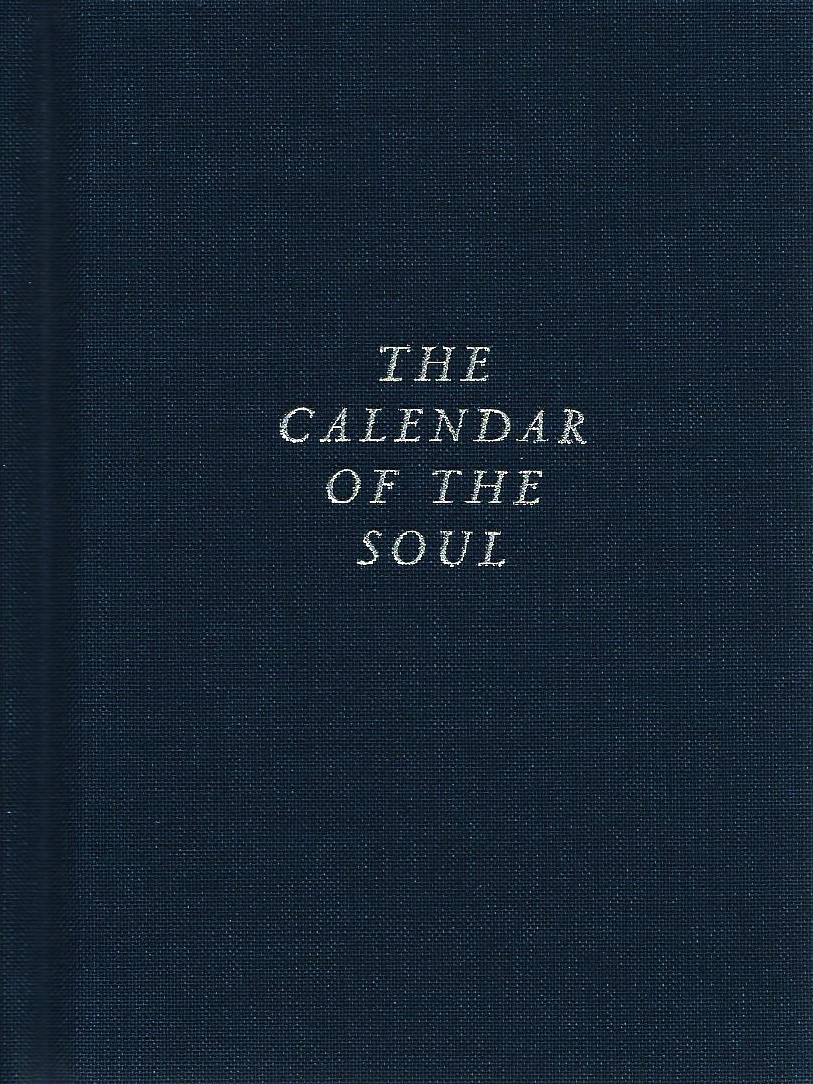The Calendar of the Soul: Pusch Translation (CW 40)
Rudolf Steiner’s collection of fifty-two meditative verses—presented here in both English and German—were first published in 1925, shortly after Steiner’s death. These verses, representing the fifty-two weeks of the year, begin with Easter week and offer thoughts that help one find a deeper relationship with the spiritual forces at work throughout the year.
Each verse in this volume appears alongside the corresponding verse for the week that represents a kind of opposite (or “compensating”) force during the year.
This durable, pocket-sized hardcover volume also includes a short introduction by Hans Pusch, describing a unique and useful way to approach The Calendar of the Soul.
The Calendar of the Soul is a translation of “Anthroposophischer Seelenkalender,” included in Wahrspruchworte (GA 40).
About the Author
Rudolf Steiner (1861–1925) was born in the small village of Kraljevec, Austro-Hungarian Empire (now in Croatia), where he grew up (see right). As a young man, he lived in Weimar and Berlin, where he became a well-published scientific, literary, and philosophical scholar, known especially for his work with Goethe’s scientific writings. At the beginning of the twentieth century, he began to develop his early philosophical principles into an approach to systematic research into psychological and spiritual phenomena. Formally beginning his spiritual teaching career under the auspices of the Theosophical Society, Steiner came to use the term Anthroposophy (and spiritual science) for his philosophy, spiritual research, and findings. The influence of Steiner’s multifaceted genius has led to innovative and holistic approaches in medicine, various therapies, philosophy, religious renewal, Waldorf education, education for special needs, threefold economics, biodynamic agriculture, Goethean science, architecture, and the arts of drama, speech, and eurythmy. In 1924, Rudolf Steiner founded the General Anthroposophical Society, which today has branches throughout the world. He died in Dornach, Switzerland.
Hans Pusch, a skilled actor and director and a leading member of the Goetheanum stage group, later becoming an early beacon of Anthroposophy in North America. Hans began acting at the age of sixteen in Lucerne, Switzerland, where he performed in amateur productions of German classics with other young people during World War I. His performances caught the attention of the great film director Murnau, who offered to take Hans to Hollywood and train him for an acting career. Later, in Santa Barbara, Hans opened a speech studio, where he conducted courses in speech, eurythmy, gymnastics, play-reading groups, and introductory courses on Rudolf Steiner and his writings. Hans developed a repertory theater that performed Shakespeare, Thornton Wilder, Anouilh, Fry, and Eugene O’Neill. For the rest of his life, Hans Pusch worked tirelessly in the New York City area to translate, perform, and promote Rudolf Steiner’s mystery dramas, as well as Goethe’s Faust, as expressions of the essence of Anthroposophy.
Ruth Pusch, born Ruth Barnett, was raised in New Haven, Connecticut. After a period of time spent in Dornach, Switzerland, as a student of spiritual science, she married the actor Hans Pusch in 1932 while in the U.S. Together, they returned to Dornach, where Ruth studied eurythmy with some of the pioneers of that new art form. She later taught eurythmy in New York City and was an early teacher at the Waldorf School New York City. She and her husband were also active in bringing the anthroposophic impulse to the dramatic arts in North America. Along with Hans, Ruth Pusch also helped translate Rudolf Steiner’s four mystery plays.











Hazel Archer-Ginsberg (verified owner) –
Thanks, I had lost my long worked with little bue book & have been longing to get a new one. The turn around was fast & I am grateful. Thanks . Blessings